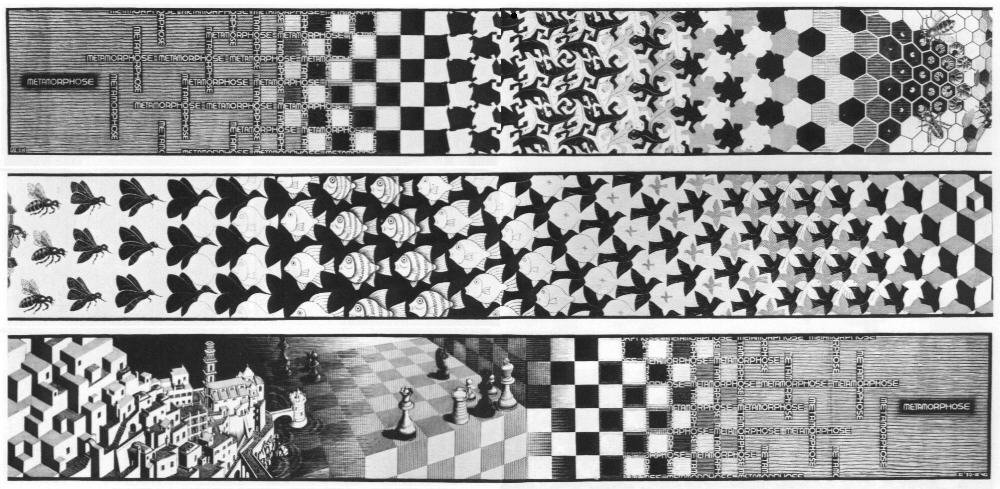Well, I'm back. I decided to resurrect this blog because of something I'm starting to work on in college. I'm involved in the honors program at my school, and part of the program is completing what's called a great questions essay. I'm mainly using this blog right now to have a place to gather and organize my thoughts. I want to have a better idea of exactly how I want to approach this, and writing about it helps. I don't think much of this will appeal to a wide range of people, and I don't know how much I expect it to be read. Frankly, I think a lot of people will find it boring. However, it would be helpful for me to have this as a sounding board where others could give me ideas or opinions I can use, but I guess we'll see how well that pans out.
The essay I'm going to write will be based largely on a few themes from the book "Godel, Escher, Bach" by Douglas Hofstader. I was introduced to this work while reading a spinoff of Harry Potter called "Harry Potter and the Methods of Rationality". And yes, it is at least as geeky as the title implies. I like it because I'm a science nerd and so is the pseudo-Harry in the story. Anyway, the story references "Godel, Escher, Bach" (hereafter referred to as GEB) several times. Some time after starting to read this, I was looking at some things I could do to complete other requirements of the honors program, and reading GEB was one of them. I thought I would give it a try.
It's a tough book. It's tough no matter who you are. One distinguishing feature of GEB is just how familiar the author is with many academic disciplines. His main background, as evident from the book, is mathematics, computer science, physics, and philosophy; but he is also quite adeptly acquainted with life sciences, music, literature, art, and even Zen. I especially enjoy how much effort Hofstadter puts in to "dumbing down" the subject at first just enough for me to understand it. It makes it an interesting read for me because it's a challenge, as if the author is daring me to intellectually keep up and try to understand what he's explaining. What impressed me the most is how smoothly he incorporates all these areas of study to describe one of the overarching themes of the book: consciousness. He often explores this through the question: "Can a machine be programmed to think, act, or operate the way humans do?"
This is the great question I plan to address in my essay. Because GEB covers this topic so thoroughly, most of my posts here are going to be a sort of commentary about principles Hofstadter discusses in the book. However, I may later depart from those more often, since I plan in my essay to address the theological perspective of the issue, which Hofstadter never touches. To those reading this post, I would recommend trying to read a couple posts if you're interested, and if you're still bored after that, give up. I don't want to waste anyone's time with this blog if what I discuss isn't what you're interested in. But if it does appeal to you, it would be helpful to have additional feedback. So here goes.

No comments:
Post a Comment